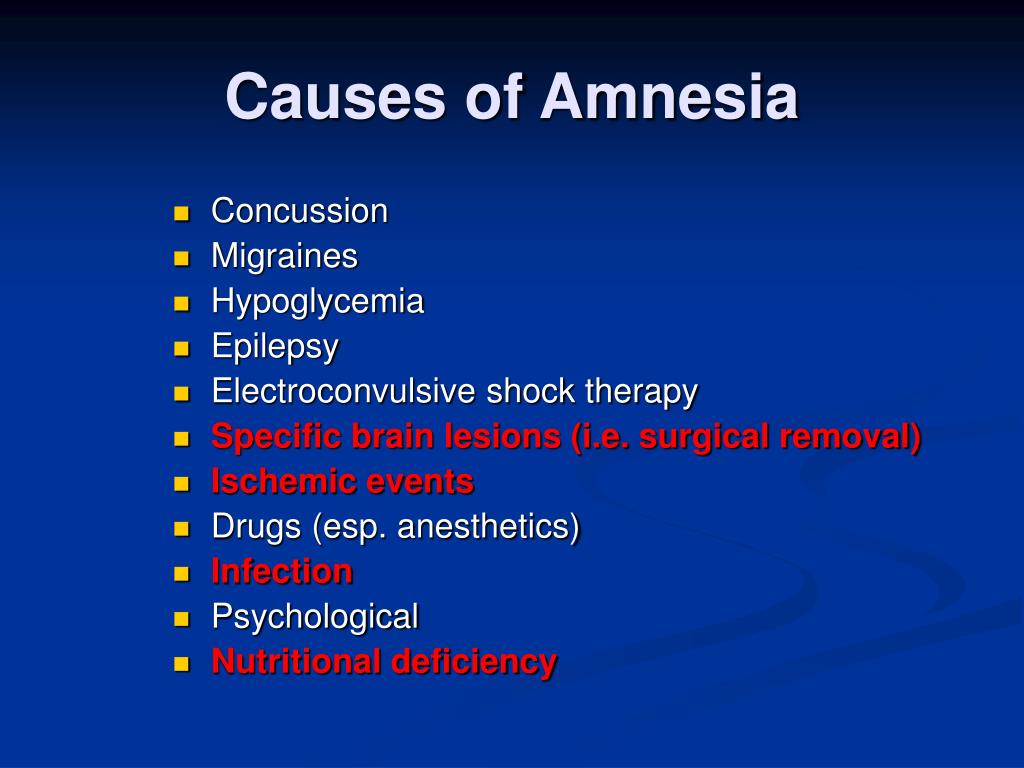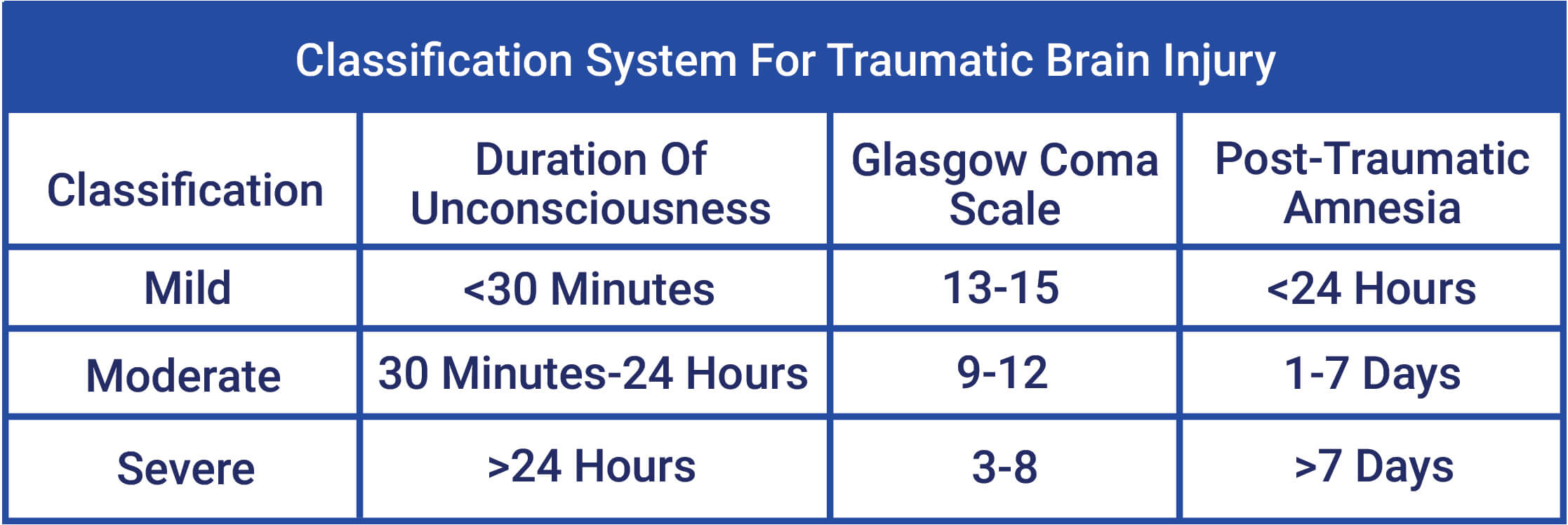

Furthermore, delivering this intervention does not increase levels of agitation during PTA nor does agitated behaviour limit therapy participation. Post-traumatic amnesia (PTA) is a state of confusion that occurs shortly after a traumatic brain injury (TBI), leaving the injured person disoriented and.
#Types of amnesia brain injury manual#
The intervention approach outlined in this manual has been shown to be efficacious and cost effective in enhancing functional independence and hospital discharge. Recommendations regarding management and assessment of agitation, PTA assessment, and goal setting are also included. More recently, the definition has been broadened to include a state of disorientation to time, place, and person. For years, PTA was defined as the period of time after an injury when the brain is unable to form continuous day-to-day memories. It is called post-traumatic amnesia (PTA). Activities of daily living addressed in the manual include personal care (bathing, grooming, dressing), self-feeding, and light meal preparation. This is a normal part of the healing process. This therapy manual (developed by Dr Jessica Trevena-Peters, Dr Adam McKay and Prof Jennie Ponsford) provides background information regarding PTA, an outline of the evidence underpinning the approach of skills (ADL) retraining during PTA, and guiding principles for intervention delivery, particularly procedural and errorless learning.
#Types of amnesia brain injury trial#
In this context, a randomised controlled trial was conducted to evaluate the efficacy of activities of daily living (ADL) retraining during PTA. There is considerable variability in the assessment and management of patients in PTA and limited evidence to guide rehabilitation during this early phase of recovery. Some types of therapies can help you cope with this. In some cases amnesia may be temporary, but in other cases it may be permanent. It is characterised by generalised cognitive disturbance or delirium, confusion, disorientation, anterograde and retrograde amnesia, and, often agitation. It’s caused by damage to memory-making parts of your brain.


Post-traumatic amnesia (PTA) is feature of traumatic brain injury (TBI) that commonly follows emergence from coma. Written by Jessica Trevena-Peters, Adam McKay & Jennie Ponsford Retrograde amnesia is the inability to recall or remember past experiences. Retraining Activities of Daily Living During Post-Traumatic Amnesia following Traumatic Brain Injury: Therapy Manual


 0 kommentar(er)
0 kommentar(er)
